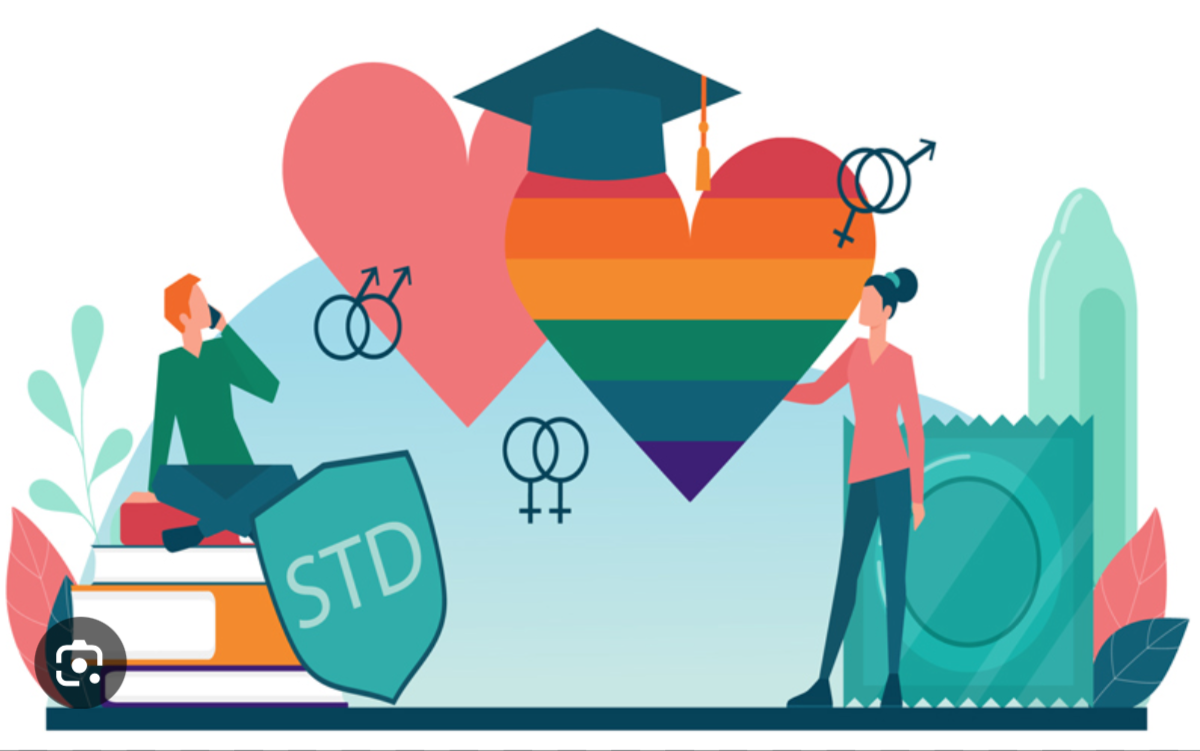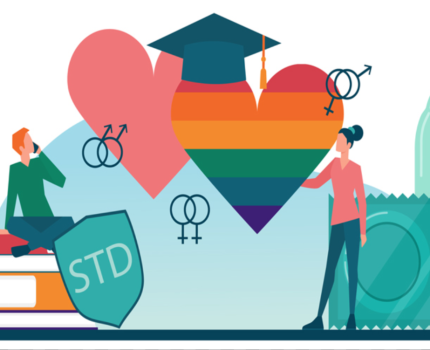In humanitarian emergencies, gender inequality becomes more pronounced, and women and girls are disproportionately affected. Many vulnerabilities are exasperated, including a significantly increased risk for unwanted pregnancy, gender-based violence, STIs, and maternal mortality (UN Women). A recent episode of the Educate Us! Women and Girls on Learning in Humanitarian Crises podcast, produced by the Inter-agency Network for Education in Emergencies (INEE), explores the critical role of comprehensive sexuality education (CSE) in humanitarian settings such as Egypt, Lebanon, and Jordan, providing young people with the knowledge and skills they need to navigate subjects such as gender-based violence, sexual exploitation, and access to reproductive healthcare.
The Role of Comprehensive Sexuality Education
In Egypt, Nariman Moustafa, an educator and community organizer, discusses how there is a lack of adequate education about sexual and reproductive health, which could provide young people with tools to negotiate boundaries, identify healthy relationships, and make informed choices. Cultural norms and insufficient training are contributing factors, and Nariman suggests constructing a curriculum that is grounded in local knowledge and language, working with young people to find heritage-based examples, to reduce the pushback against CSE.
“It gives people accurate, age-appropriate information about sexual reproductive health, this is critical to health and survival. Across the years there has been a lot of advocacy that this is not just a nice thing to have, it´s actually part of human rights”
Farah Hammoud, specialist in the prevention of sexual exploitation and abuse for Unicef Lebanon, highlights how the country’s compounded crises, including economic collapse and political instability, have deepened pre-existing vulnerabilities and enhanced gender inequality, exasperating gender-based violence, obvious despite the lack of reports.
“GBV is always under-reported because of multiple factors: including the restricted mobility of survivors, the stigma, the shame, the dependecy that survivors have on the perpetrator, and the lack of accountability for misconduct in our country in general”
In a context where early marriage and child labor is on the rise, CSE speaks to a need for targeted action and education and gives young girls the knowledge they need to make informed decisions about their futures. The United Nations Population Fund (UNFPA) emphasizes that comprehensive sexuality education helps prevent unintended pregnancies and HIV, which are heightened in emergencies (UNFPA, 2015).
In Jordan, Reyam Majeed, a member of the refugee education council, also speaks to the lack of information, partly due to a fear of shame and the discomfort of adults.
“It´s important to emphasize it´s not about promoting sexual activity, but about providing young people with knowledge and skills they need to make informed decisions about their health and well-being”.
CSE can provide age-appropriate, culturally-sensitive information, key to protecting girls from exploitation. This approach is backed by UNICEF, which stresses the importance of using digital spaces to provide access to CSE, especially when physical access is restricted (UNICEF, 2022). Their platform Laaha, introduced by Farah in this episode, is a perfect example.
Why It Matters Now
As Nariman, Farah, and Reyam point out, CSE fosters empowerment and agency in young people, which is key to advancing equality and human rights. By tackling gender-based violence and improving access to sexual and reproductive health education, CSE becomes a crucial lifeline for women and girls in crisis settings, and its limited access must be addressed. Listen to the full episode of the Educate Us! podcast series to learn more about how CSE is transforming lives in humanitarian settings.


Thank you for this insightful post! It’s so important to recognize the role of Comprehensive Sexuality Education in empowering young people during humanitarian crises. Your article really sheds light on how vital it is for supporting girls’ health and well-being in such challenging times. Appreciate you sharing this valuable information!